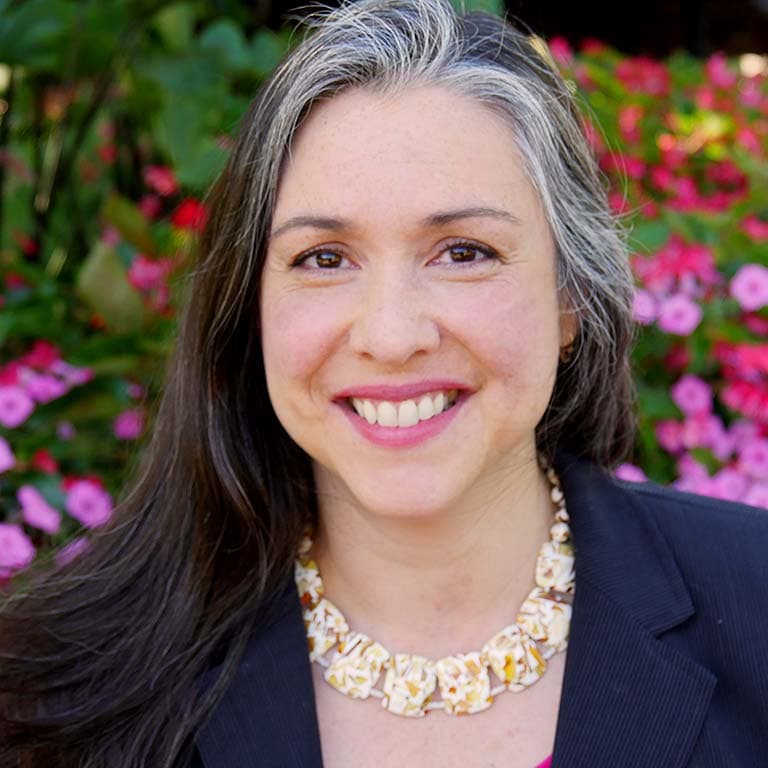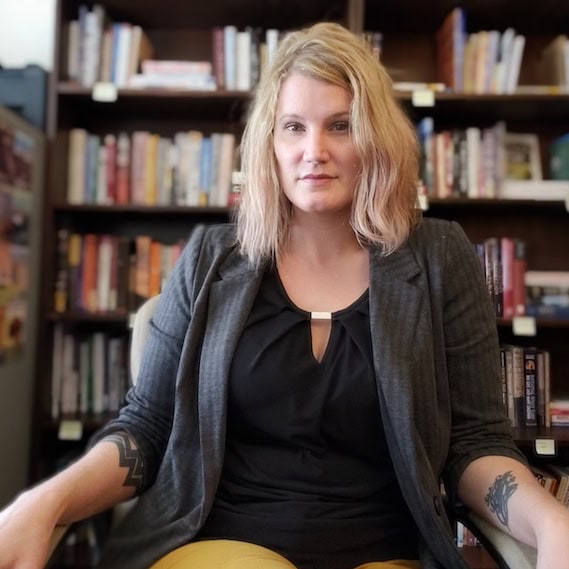
The AHA annual meeting offers dozens of sessions on digital history and scholarship. Marc Monaghan
In February 2017, Evan Faulkenbury, assistant professor of history at SUNY Cortland, wrote a blog post for AHA Today about his “digital history fact-finding mission” at the 2017 annual meeting. He and two other colleagues traveled to snowy Denver to “learn as much as possible about digital history in three days.” Their first stop was the Getting Started in Digital History workshop. The half-day series of sessions kicked off and “energized” their efforts, and initiated them to the world of digital scholarship. As Faulkenbury wrote, their central goal was to determine how their department could better serve students by expanding its digital and public history offerings.
Over 500 historians have participated in the Getting Started in Digital History workshop since we began offering it in 2014. We have run dozens of introductory and intermediate training sessions on everything from digital public history and pedagogy to text mining and mapping. Many historians and digital humanists have generously given their time to lead these sessions. The fifth workshop, at the 2018 annual meeting in Washington, DC, will provide another 150 members of our discipline with the opportunity to gain some fundamental digital scholarship skills and experience.
During our time running the workshop, we’ve learned much from our colleagues who have attended and led sessions. Participants have included faculty and graduate students from a variety of institutions, including research universities, liberal arts colleges, and community colleges; many hold positions outside the academy. From them, we’ve learned that training in digital skills and methods for research and teaching is important professional development and is as relevant to those seeking to build basic knowledge as it is to those working on advanced projects.
In recent years, many workshop attendees, like Faulkenbury and his colleagues, have not only expressed curiosity about all things digital, but also have started asking questions about expanding institutional support. According to attendees, while expectations to produce digital scholarship and use digital tools in the classroom have increased, institutional and departmental support for such work is often lacking. Faculty and staff have invested in digital history, but many are concerned about how to do digital history work at institutions that have limited research time and resources, no digital humanities centers, and no consistent streams of grant funding. Many want their institutions to provide more resources for digital humanities work, including opportunities for training, better technical infrastructure, staffing, and means for obtaining professional credit. All of these are necessary for historians who want to use digital tools in their research and teaching.
In recent years, workshop attendees have started asking questions about expanding institutional support.
While in the past attendees were mostly anxious about obtaining grants for large-scale digital projects, they are now concerned about finding sustainable institutional support for digital history and digital scholarship. Our participants from low-tech or smaller campuses in particular are curious about how to fund digital history projects, how to establish major or minor programs and degrees, and how to support and recognize digital pedagogy and critical digital approaches in the classroom. These questions highlight the growth and importance of digital methods outside of research-focused institutions.
Indeed, the most popular offerings at the workshop are always those on digital pedagogy (so register today if you’re interested). We believe that there are two explanations for this. First, seasoned digital historians have found that integrating digital projects into the classroom can provide gateways for their own work in small- and large-scale digital research projects. Classroom integration builds capability and confidence while reciprocally inspiring faculty and students to pursue new forms of research.
Second, the proliferation of intuitive and user-friendly tools has eased newcomers, including students, into digital history. Compared to when we first started offering the workshop, more of our attendees now characterize themselves as possessing some digital skills and experiences. Using off-the-shelf tools, teachers can easily apply digital methods in the classroom, engaging students with spatial and social history and concepts such as change over time. These tools are often so accessible that anyone with basic digital literacy can use them. So while interest in digital pedagogy remains high, there is little need for teachers to create their own tools to improve student involvement. In fact, over the years, interest in sessions at the workshop that encourage tool-building has gradually declined.
Closer examination of the pedagogy sessions further reveals some broad trends across the discipline and suggests that digital pedagogy is finding a place in the classroom regardless of institutional support. In recent years, participants at all institutional levels of the academy, from high-output research institutions to small liberal-arts colleges, showed nearly equal interest in the introductory and intermediate tracks for digital pedagogy. The consistency of interest even as digital historians advance in skill level reflects an ongoing dedication to pedagogical innovation across all types of institutions. In other words, the idea that faculty at liberal arts colleges are more likely to devote their training to teaching than faculty at research institutions is bunk. Interest in pedagogical methods is one of the main drivers for attendance at the workshop for faculty across the academy.
Workshop participants also expressed a need for more institutional support for digital methods in training and scholarship alongside pedagogy. Championing graduate training in digital history is more necessary and desirable than ever. Digital history is now a practical, marketable investment in graduate training, and faculty responsible for directing graduate work increasingly come into contact with students whose work incorporates digital methods. AHA job listings that specifically mentioned digital history or humanities as a required or preferred field more than doubled from 2013–14 to 2015–16. These jobs expect candidates to understand and be able to use and teach digital tools and methods. As such, graduate curricula must begin to incorporate digital methods in order to adequately prepare students for diverse careers. Faculty on graduate committees need to be able to engage with the practice of digital history, both for placement reasons and to ensure that students who graduate with digital history credentials have skills that are well developed rather than cursory and done solely for the sake of getting a job.
While the demand for certain kinds of institutional support, such as graduate training, has increased in recent years, the needs in other areas, such as tool building, have diminished. There are also more opportunities for local and regional training that provide support outside institutional contexts. The focus now has instead shifted to using these tools effectively for disciplinary research and pedagogy. Digital historians are thus pushing their institutions to develop and formalize digital humanities curriculum at the undergraduate and graduate levels.
Championing graduate training in digital history is more necessary and desirable than ever.
As the example set by the attendees from SUNY Cortland shows, the Getting Started in Digital History workshop isn’t solely for historians intending to actively participate in digital-methods projects. It can provide introductions that allow participants to consider how institutional support should be provisioned. It is also a space for participants to raise issues of institutional support for digital projects and compare notes on thoughtful digital pedagogy.
The spread of digital methods to all sectors of academic and public history points to a need for faculty to develop digital methods literacy, even for those who do not engage in digital methods in their own research or teaching. As a field, this investment in digital skill acquisition is part of a broader responsibility to the profession; as individuals, this investment acknowledges that, especially in graduate training, we have an added responsibility to provide scholars with the experiences and training they need in order to thrive.
We cater to all attendees at the AHA’s annual meeting, regardless of their career path or institution. We try to ensure that our workshops are inclusive and representative of our discipline. This year the workshop will include sessions on community engagement, gamification, grant writing, pedagogy, and more. Visit our website for more information and updates. To our colleagues at all institutions, we invite you to join us. We think we can help.
This work is licensed under a Creative Commons Attribution-NonCommercial-NoDerivatives 4.0 International License. Attribution must provide author name, article title, Perspectives on History, date of publication, and a link to this page. This license applies only to the article, not to text or images used here by permission.




